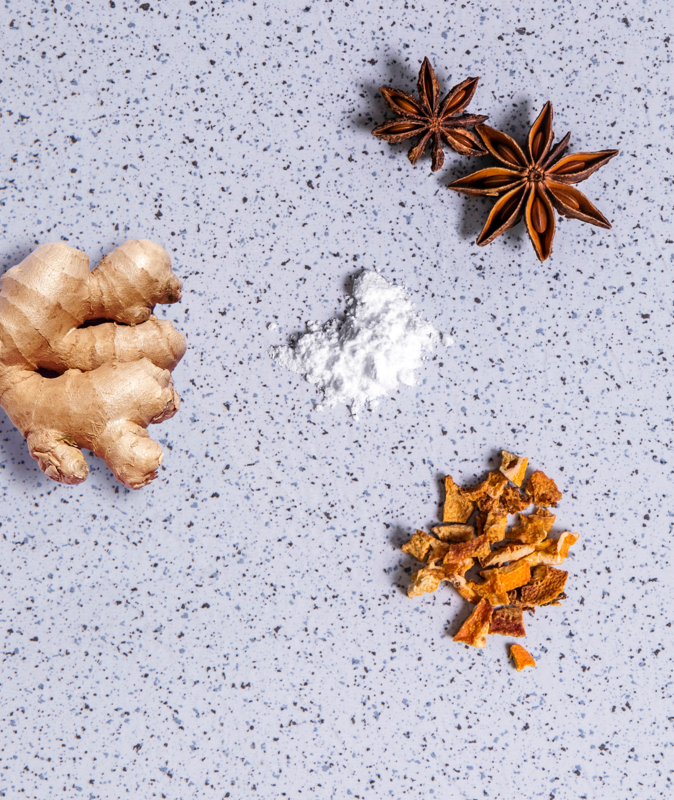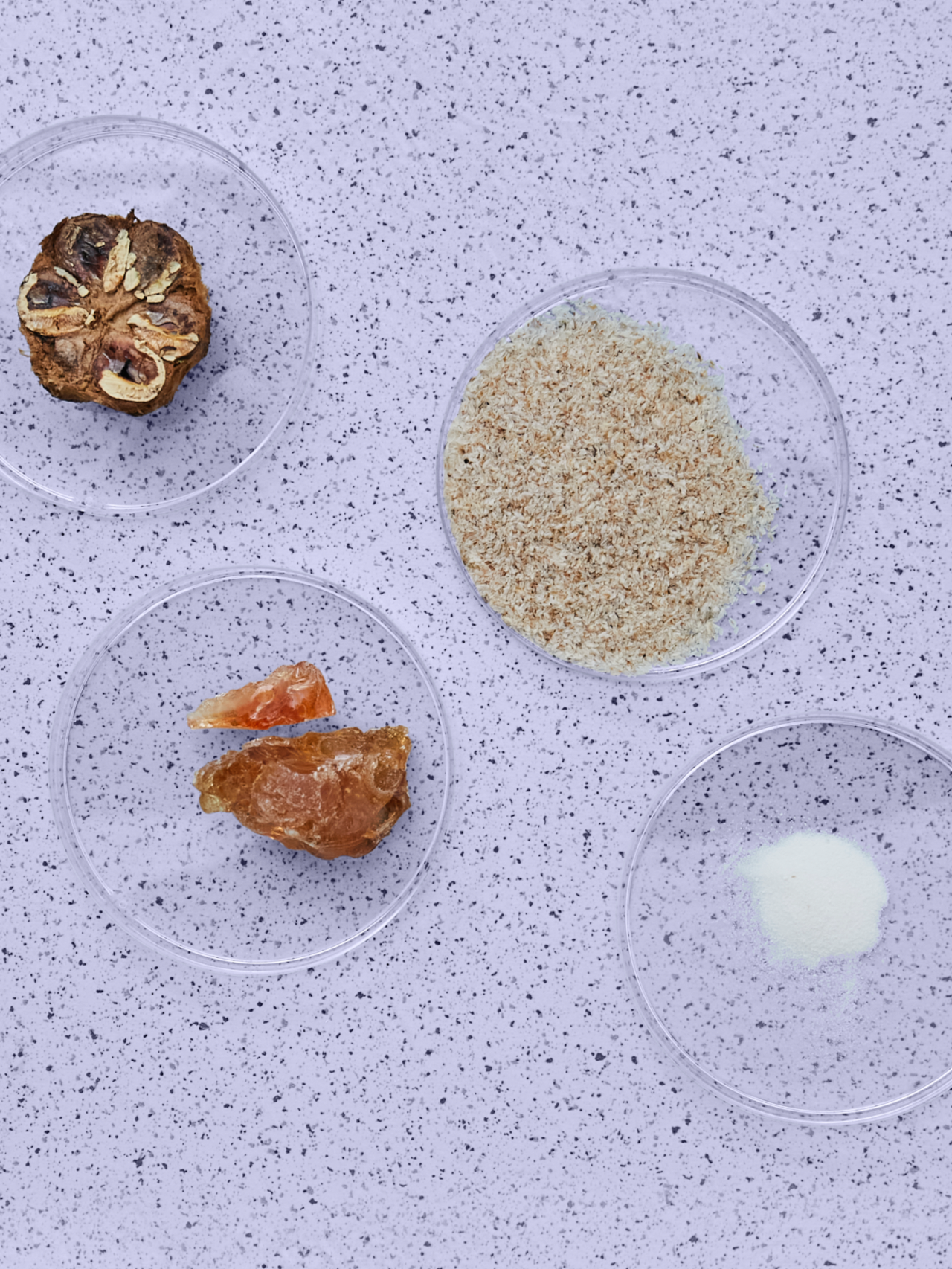
Understanding Your Digestive Health with the Bristol Stool Chart
The Bristol Stool Chart, developed in the 1990s, has become a widely used clinical assessment tool to help individuals and healthcare professionals evaluate digestive health based on stool appearance. While it may not sound glamorous, understanding your stool can provide valuable insights into the state of your gut, digestion, and overall health.
But beyond just looking at the chart, it's equally important to know how to address issues like constipation, dehydration, or general gut support with natural remedies. Whether you’re dealing with sluggish digestion or simply looking to optimize your gut health, nature provides powerful solutions in the form of herbs, fruits, and minerals.
The Bristol Stool Chart: Decoding Your Digestive Health
The Bristol Stool Chart categorizes stool into seven types, ranging from hard, difficult-to-pass stools to loose, watery stools. Here's a breakdown of each type and what it might signal about your digestive system:

What Natural Ingredients Can Help?
Once you’ve identified where you fall on the Bristol Stool Chart, you can take steps to improve your digestive health. Below are some natural remedies that can help address common digestive issues, from constipation to general gut support.
For Constipation: Magnesium Citrate
Constipation is one of the most common digestive complaints, and it often stems from a lack of fiber, dehydration, or a sedentary lifestyle. When your bowel movements are infrequent or difficult to pass (typically Type 1 or 2 on the Bristol Stool Chart), magnesium citrate can be a powerful ally.
Magnesium is a mineral that plays a critical role in muscle function, including the muscles of the digestive tract. Magnesium citrate works by drawing water into the intestines, which helps soften the stool and stimulate bowel movements. It's particularly effective for people dealing with occasional constipation.
-
How to Use It: Magnesium citrate is available in supplement form and should be taken with plenty of water. For a gentle and natural solution, Hilma’s Gentle Bowel Movement Support formula contains magnesium citrate and other gut-supporting ingredients designed to help relieve constipation without harsh laxatives.
-
Dietary Sources: In addition to supplementation, you can also increase your magnesium intake through foods like spinach, almonds, pumpkin seeds, and black beans. While these food sources provide magnesium, they may not be as fast-acting as supplements when addressing acute constipation.
For a Dehydrated Gut: Amla Fruit
Dehydration is a common issue that can negatively affect gut health. When your body lacks sufficient water, your digestive system can slow down, leading to harder, more difficult-to-pass stools (Types 1 and 2). A dehydrated gut can also contribute to issues like bloating, indigestion, and a sluggish metabolism.
One natural remedy that can help rehydrate the gut is amla fruit, also known as Indian gooseberry. Amla is rich in vitamin C and antioxidants, which help support overall gut health. It’s known for its ability to reduce inflammation in the digestive tract and promote healthy hydration levels. Amla also has mild laxative properties, which can help stimulate digestion without causing irritation.
- How to Use It: Amla is available in several forms, including powder, juice, and capsules. You can mix amla powder into water or smoothies or take it as a supplement. If you're looking for a convenient option, Hilma's Stomach Recover + Hydration formula includes amla fruit along with other hydrating ingredients, designed to soothe the stomach and promote digestive balance.
- Bonus Benefits: Amla is also beneficial for supporting liver function and detoxification. Since the liver plays a significant role in digestion, consuming amla can help your body process and eliminate toxins more efficiently, which can further improve gut health.
For General Gut Support: Peppermint
If you’re looking for a natural way to support your digestive system on a daily basis, peppermint is a fantastic option. Peppermint has long been used to alleviate digestive issues like bloating, gas, and indigestion. It has antispasmodic properties, meaning it can help relax the muscles of the gastrointestinal tract, making it particularly helpful for those with irritable bowel syndrome (IBS) or chronic bloating.
Peppermint oil is also believed to help improve bile flow, which can aid in the digestion of fats and prevent feelings of heaviness or discomfort after meals. Whether you’re dealing with mild digestive discomfort or simply want to support overall gut function, peppermint can be a gentle yet effective solution.
- How to Use It: Peppermint can be consumed in several forms. For an easy way to incorporate peppermint into your routine, you can find it in Hilma's Gas + Bloat Relief formula, which combines peppermint with other natural ingredients to provide targeted digestive relief. Peppermint tea is also a soothing and delicious way to enjoy its digestive benefits, especially after meals.
- Bonus Benefits: In addition to supporting gut health, peppermint is known for its ability to relieve headaches and improve focus. Its cooling and calming effects can also reduce stress and anxiety, which are closely linked to gut health.
For Digestive Relief: Fennel
Fennel is a powerhouse for easing digestive discomfort, especially for those dealing with bloating and gas. Its potent anti-inflammatory and antispasmodic properties work by relaxing the muscles in the digestive tract, promoting the release of trapped gas, and offering relief from the cramping and bloating often associated with Types 5 and 6 on the Bristol Stool Chart.
Used for centuries to enhance digestive health, fennel is particularly effective at improving gut motility, preventing sluggish digestion, and soothing symptoms like nausea and indigestion, which frequently accompany irregular bowel movements.
- How to Use It: Fennel can be enjoyed in a variety of forms—chew on fennel seeds after a meal, brew fennel tea, or opt for fennel extract supplements. Drinking fennel tea is an especially soothing way to ease digestion after a large or heavy meal, helping to prevent bloating and discomfort. For an easy, targeted approach, Hilma's Gas + Bloat Relief formula incorporates fennel alongside other natural ingredients to provide comprehensive digestive support.
- Bonus Benefits: Fennel is also rich in fiber and antioxidants, which help support overall gut health by promoting regularity and reducing inflammation in the digestive tract.
For Hydration and Gut Cleansing: Lemon in Hot Water
Drinking lemon in hot water is a simple and effective daily practice that can significantly benefit your digestive health. Lemon stimulates the production of bile, which aids in the digestion of fats and promotes smooth bowel movements. For individuals experiencing sluggish digestion or constipation (Types 1 and 2 on the Bristol Stool Chart), the warmth of the water combined with the acidity of the lemon can help stimulate the digestive system and hydrate the gut.
In addition to its hydrating effects, lemon contains vitamin C, an antioxidant that supports immune function and helps reduce inflammation in the digestive tract. The combination of warm water and lemon juice is especially helpful first thing in the morning to kick-start digestion, cleanse the gut, and rehydrate the body after sleep.
- How to Use It: Squeeze the juice of half a lemon into a glass of warm water and drink it on an empty stomach in the morning. This simple practice can help jumpstart your digestive system and promote regular bowel movements.
- Ale Lubezki (@eatswithale), a Holistic Health Coach, also reveals her go-to digestion tip when dining out: ordering “hot water with a slice of lemon” before the meal. She explains that this simple practice primes the digestive system by stimulating the production of digestive juices and enzymes, making it easier for your body to break down food. Don’t let the restaurant charge you for it!
- Bonus Benefits: Besides its digestive benefits, lemon water can also support skin health, reduce bloating, and aid in detoxification by promoting the elimination of toxins through urine and bowel movements.
The Bristol Stool Chart is more than just a tool for identifying the type of bowel movements you experience—it serves as a window into the complex workings of your digestive system and overall internal health. Regularly monitoring your stool can reveal signs of constipation, dehydration, or digestive imbalance. Ideal stools, such as Types 3 and 4, suggest a healthy gut, while harder (Types 1 and 2) or looser stools (Types 6 and 7) may indicate the need for dietary or lifestyle adjustments.
By recognizing these signals, you can feel empowered to proactively address issues using natural remedies like magnesium citrate for constipation, amla for dehydration, or fennel and peppermint for gas and bloating.
Sources:
This information is for educational purposes only and should not be taken as medical advice. Please consult a physician before treating any disorder.




